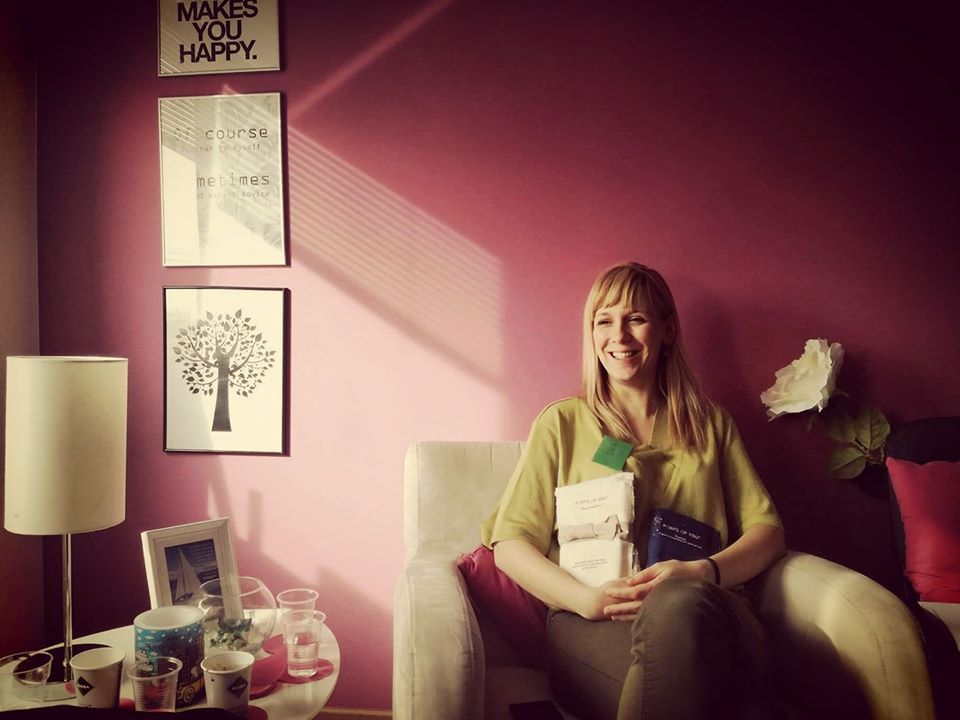
The importance of developing our entrepreneurial resilience.
Becoming an entrepreneur is a risky proposition. There are many factors, both internal and external, that can have an impact on the success of your organization. The key to success is to quickly adapt to difficult events and learn to bounce back from past mistakes or failures.
It might often seem to us as if some people find it easier to deal with personal and professional challenges or simply that we are too gentle, emotional so that it is destined for us to somehow cope with life harder.
On the other hand, many people (especially in the Balkans where I’m coming from) think that resilience equals never whining, always having a smile on your face and that you go through all the adversities, with a fighting spirit and emotional restraint.
It is not true if you are highly sensitive, emotional, empathetic that you cannot be resilient. It is also not true that you are resilient if you “keep yourself and all the things under control” and never show others (or yourself) that you are going through difficult times.
What is entrepreneurial resilience?
Entrepreneurial resilience is the ability to bounce back, renew, and go again. After you work through a setback it’s possible that instead of moving forward you could stop thriving.
From our experience, the programs we run for professionals and entrepreneurs, the people we work with, the resilient people are first of all self-aware. Why? Because when you work on developing your self-esteem, you are working on developing your own resilience to deal with life’s adversities, strengthening your faith in yourself and your capacity to treat yourself the same way you would treat others. You support yourself through encouragement and motivation, not criticism and condemnation.
Join our Action-Packed 7-day Resilient Leader Challenge!
Each day presents a unique dare to stop, slow down, notice, feel, and connect. Hit the link 👇 to learn more.
3 key ingredients to develop resilience
The three components of self-compassion (Mindful self-compassion program developed by Kristin Neff and Chris Germer) are completely complementary in the development of resilience.
Therefore, I will start with an explanation of each component of self-compassion individually, where I will write more about the guidelines of their development and how each one of them helps to strengthen your resilience.
Self-awareness (Mindfulness practice).
If you are working on developing awareness of your own emotions and their acceptance, this helps you in situations when something challenging and overwhelming happens to you so that you can calm yourself down. Resilient people practice Mindfulness.
Why?
Because this practice helps you better control stress, first recognize it, stop your whirlwind of worries and negative thoughts that lead you to an even worse state, and make calmer and healthier decisions and choices. When difficult periods happen to us, we are mostly overwhelmed with emotions that we do not know how to control and our brain works faster than ever and at the same time, we also have negative thoughts, worries that do us even more harm. The moment of stopping, pausing, and recognizing thoughts only as thoughts (not investing in their infinite elaboration), feelings only as feelings makes us emotionally resilient to deal with difficult experiences.
Common humanity – our strength is in our vulnerability.
It is important not to neglect the power of relationships. I believe the covid pandemic pointed this out to us.
On the other hand, not all relationships have a healing component for us. Many of us have a problem being honest in relationships and clearly asking for help when it comes to our pain, unpleasant feelings, difficulties we face … Others cannot read our thoughts, needs, and expectations. This is an opportunity to honestly connect and find encouragement and support in others. This does not mean that we are weak, incompetent, but simply that we realize that for some things we need another person to listen to us, understand us and simply be there for us. How many times have you told a problem that has been bothering you for a long time and you surprised yourself that the process was not difficult at all in the end? And that you felt a great relief after sharing? To me personally, it happened many times. This is exactly the kind of relationship and support we need. When we know that we have such relationships in our lives, then it is somehow easier to face life’s turbulence and problems. We know we have people who are our refuge and unconditional support.
Support yourself.
When we make a mistake, do something bad, or our plans, goals, collapse like a tower of cards, then the hardest thing is to be resilient … why?
Because we are not facing some external factors that we need to deal with, but we are facing ourselves. Unfortunately, most often the main stumbling block in the development of resilience is ourselves.
Why?
Because we endlessly blame and condemn ourselves. We do not know how to simply accept our own mistake, take responsibility to correct that mistake, and move on. That sounds simple, but we all know it’s not. First of all, because it’s hard for us to forgive ourselves or we endlessly question ourselves if we could have done this better, differently, smarter … why did I allow someone to deceive me, use me … one hundred and one questions we ask ourselves related to the negative experience … And that doesn’t get us anywhere. Endless self-sabotage, criticism, and condemnation. I’m not saying that when you make mistakes, you should give yourself a medal, but look at mistakes from a different angle.
First, give yourself an understanding of what is difficult for you now. Give yourself empathy for suffering because of what happened. Soothe yourself and your feelings of guilt, shame, anger … Then maybe share it with someone, with a good friend, a person of trust with someone who is there for you no matter what. Ask yourself what would she or he tell me now in this situation? How would they talk to me, how would they calm me down? Then with the same words, your close friend would calm you down, you calm yourself. Then after calming yourself down, ask yourself a series of questions about all the lessons you have learned now after this experience. What do you know now that you didn’t know before – about yourself, relationships, other people? How will your life go on after this experience? What are the things you will never allow yourself again? What are the new skills and knowledge you have gained thanks to what happened? By answering these questions, we actually learn that from defeat, adversity, we have the opportunity to grow, develop, learn…
- We all know that one learns from mistakes.
- Why do you think it should be different for you personally?
- Were you born as an omniscient sage?
Stay Connected & Level Up Your Leadership with Bujoo!
Craving for more wisdom on leadership and team building? Sign up for our newsletter now and enjoy weekly nuggets, invigorating exercises, enlightening podcasts, and inspiring stories — your toolkit for becoming a better leader awaits.


























